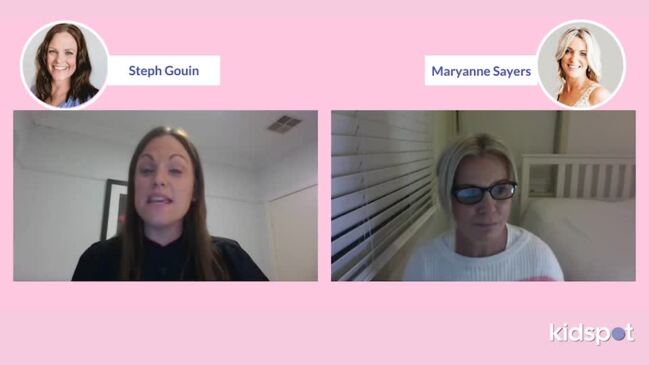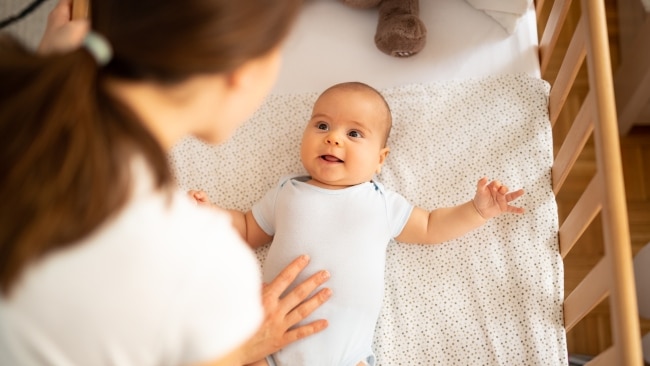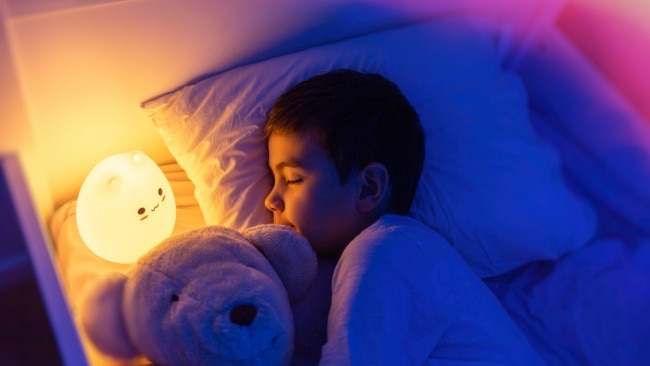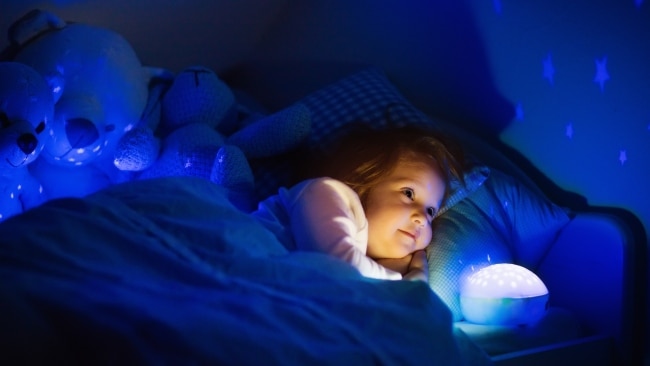Baby not sleeping? Here's one of the worst things you can do
Call it a sleep regression, call it a leap, call it separation anxiety. Whatever it is, desperate, sleep-deprived parents will try just about anything to get their little ones snoozing through the night.

Parents of babies and toddlers know wayyy too much about their little one's sleep patterns (or lack thereof).
We obsess over it, we track it on our phones, we beg fellow parents for advice and guidance on what to do differently, we turn to Google at ridiculous times of the night in the hopes of finding an answer.
Any parent who has ever experienced their baby or toddler go through some kind of sleep regression will know exactly what I'm talking about.
Unfortunately, there is rarely a 'quick fix' or some secret sauce when it comes to getting your adorable sleep thief to stay in Snooze Town all night long (and preferably, for a good couple of hours during the day, too).
Typically, it's a combination of factors leading up to that change in sleep pattern or disruption to a cycle that was previously working very well for bub.
Want to join the family? Sign up to our Kidspot newsletter for more stories like this.

RELATED: ‘A mum offered me $3K to sleep train her baby that night’
"So many parents make this mistake"
Sleep regressions are generally a short-lived interruption to your baby or toddler's regular nighttime and napping routine. Even the "world's best sleeper" (we all know that parent who has bragged about their perfect sleeper) can go from a hundred to zero in record time if they hit a regression, caused by an explosion of cognitive and emotional development.
The result? The tried-and-true baby bedtime you've had in place for months suddenly stops working. Naturally, parents will try anything to get them back on track. And often, one of the first blind suggestions is to introduce a night light.
"Night lights really aren’t necessary and more importantly, they aren’t a very good idea because they can have a huge impact on a child’s ability to fall asleep and stay asleep, in the early days and particularly as they get older," Steph Gouin, founder and leading baby and child sleep expert at Sleep by Steph tells Kidspot.
"When we are exposed to the dark in the evening and overnight, ‘melatonin’ our sleep hormone is released and that makes us feel sleepy and drowsy. On the flip side, when our bodies are exposed to light - and that’s any light be it red, pink, blue, green, and whatever other colours are out there on the market - our awake hormone ‘cortisol’ can be released to tell us to wake up," Steph further explains.
All makes sense, right?!

"Confusing and mixed messages"
Steph goes on to explain that if a baby or child sleeps with a night light, it's likely their body is being told to wake, rather than to go to sleep.
"Even when their eyes are closed, the light still comes through, which can mean confusing and mixed messages throughout the entire stretch of night sleep," she says.
"Having a night light or any artificial light on in the sleep space completely messes with nature. Our bodies are so cleverly designed to sleep and wake naturally on their own, influenced by dark, night, sleep and day, light, wake - we really shouldn't mess with that and why would we want to?"
Mythical 'magic sleep products'
If you're a parent, there's a strong chance you've fallen into the night light trap at one point or another. When you have a kid, no matter at what age, who isn't sleeping, questions and self-doubt naturally begins to creep in. "Is my child afraid of the dark?" "Are they scared to be alone in their own room?" "Are they having nightmares or night terrors?" "Perhaps a night light will comfort them?"
This is the moment that exhausted, sleep deprived parents often panic and turn to the internet in search of that 'magical sleep product' that will finally have their little one snoozing through the night. And Steph says the industry has a lot to answer for.
"Sleep deprivation for parents, babies and children is at an all-time high," she says. "It’s a nightmare for exhausted parents these days because the market is flooded with pretty looking night lights and artificial light machines. The messaging around these ‘magical sleep products’ is appealing and very tempting. And for so many desperate parents who are having sleep challenges, these products can seem like the perfect, quick, and easy solution."
Spoiler alert, they are not an easy solution (as this writer can attest).
"I can say with complete confidence, they never are," Steph confirms.
RELATED: Is your family getting enough sleep?

Take it back to basics
As a qualified baby and child expert, registered nurse and mum-of-three, Steph GETS IT! And her message is clear: figure out the foundations, stick to a routine that works for your family (consistency is absolutely key), don't get caught up in 'miracle products' or gadgets that promise to solve all of your sleep woes in one night, and sleep WILL eventually follow.
More Coverage
"When parents focus on 'what sleep product can I buy?', 'ok, tried that one, which one can we try next?' - it takes them further and further away from WHY their baby or child isn't sleeping soundly, the way nature intended us to sleep in the first place," Steph says.
"And it also takes them away from knowing and understanding that their baby or child can and will sleep well, very well, with basic sleep foundations, habits and processes in place, consistently overnight and for a baby or child's day naps too. "
For more of Steph's golden baby and child sleep advice, or to seek her help directly, you can check out her website here!
Originally published as Baby not sleeping? Here's one of the worst things you can do






